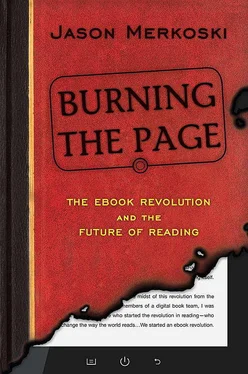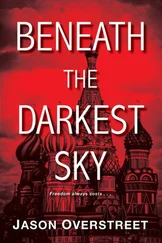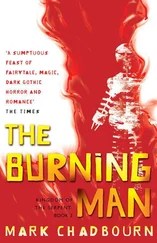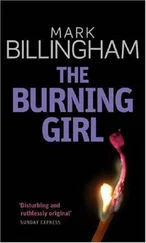Copper was only affordable enough for Gutenberg to do one line of type at a time. He could set a line and then disassemble the letters and words once that line was printed. If he needed to print more of the same Bibles or books, they would have to be hand-set from scratch, page by page, all over again. But it was the most he could afford.
It was a dark and secretive workshop, just as secretive as any tech company today, for fear of outsiders stealing this brilliant idea. Even in the 1450s, secrecy was paramount. It was an age before patent law, and innovators had no other way to protect themselves besides confidentiality. There was talk at the time that the English and Dutch were developing their own printing presses, and Gutenberg had to be careful. So all the Germans in his workshop huddled together and kept their knowledge and books secret within the fortress of its walls.
Amazon, Apple, and Google are a bit like medieval fortresses in their own ways. They’re secretive like China or Japan before they were opened up to Westerners, or like Tibet or Mecca, closed to foreigners, with rare exceptions like Sir Richard Burton, an explorer who dressed like a local and sneaked inside with his binoculars and surveying rods. In a way, it’s appropriate to speak of Amazon and other ebook companies in a medieval sense, because although ebooks seem so advanced, we’re really just emerging from the Dark Ages of reading today.
Gutenberg was just as obsessive as Steve Jobs of Apple or Jeff Bezos of Amazon. He is known to have spent months worrying about how many lines of text should be printed on one page and varying the number to find the optimal balance between cost and aesthetics. By increasing the number of lines, he could reduce the number of pages that needed to be printed, but this made the book more difficult to read.
Interestingly, I’ve seen the same situation play out in Amazon’s conference rooms. I’ve been in meetings with Jeff and his vice presidents where he obsessed about the number of lines that would appear on the Kindle screen. I’ve seen his 3:00 a.m. emails after those meetings. I’ve seen his mind wriggle and squirm just as obsessively as Gutenberg’s, and about the same feature. It’s as if we had to reinvent printing during the ebook revolution, and men like Jeff Bezos, Steve Jobs, and Eric Schmidt were Gutenberg’s ghosts, reincarnated hundreds of years later.
It’s still amazing to me that a billionaire like Jeff—with an enormous business empire and a company that makes rocketships, no less—would take hours out of his life to obsess about line spacing, of all things! But attention to detail matters. Revolutionary innovations and products live or die by such obsession—and I believe Jeff wanted Kindle to be his legacy to history. He wanted it to succeed.
Printing as we know it eventually emerged from the Dark Ages. The actual quantity of books produced during the early years was relatively small—but with every decade afterward, books became cheaper as new technologies were introduced. Mezzotint. Offset printing. Lithographs. Electric typesetting. The mass-market paperback. And as literacy around the world increased decade by decade, more and more books came to be printed because there was an audience for them.
With the advent of internet technologies like eBay and Amazon, it was possible by the late 1990s to find and acquire almost any book ever written (for a price, anyway). By the turn of the twenty-first century, we were practically flooded with printed books. Once the bulwarks of wealth and prestige, once gilded and bound in fine leather and placed behind glass cabinets in showy libraries and drawing rooms, books were now cheap commodities. You could go to any used bookstore on a weekend and see racks and racks of books sitting forlornly under an awning—a sad sight for a book lover.
As a culture, we’re still very bookish, very literate, even though books are no longer the entertainment medium of choice they once were. And while it’s easier to collapse at the end of a hard day on your soft couch in front of your TV or laptop to watch your favorite show, there’s still a place for books in our lives, because they are the rawest and truest form for telling stories and collecting, analyzing, and communicating information and ideas. The beauty of books is that you approach them at your own pace. Not only can you read at your own speed, but you also can skip from section to section, nonlinearly.
Of course, books have their limitations. They’re heavy. They’re hard to lug around on a vacation or pack in boxes whenever you move into a new home. Books are cumbersome, and it’s hard to find what you’re looking for in them. They can get out of date quickly. They age and mildew, rot and crumble.
Those of a future generation will one day look back on printed books with the same benign and befuddled expressions that we use when we look at floppy disks or those colossal IBM mainframes with spinning reels of tape that you see in the background of the villain’s lair in James Bond movies. Books are bulky, and an individual book doesn’t hold much data compared to what an e-reader can hold.
Please don’t misunderstand me. I’m a book lover: some of my best friends are books. But I see the limitations of books, and I see ebooks as their natural continuation. And yes, this means that one of the challenges we’re going to have as ebook readers is to accept that reading is a technology-based experience. That means the culture of reading will evolve and change like all technologies do. This might seem troubling to some, but remember that print technology has also evolved over the centuries. It simply had a 500-year head start, and there aren’t many evolutions left for it.
By the time you and I started reading as kids, print was basically done evolving. But we’re still on the rapid exponential rise of technology’s evolution for ebooks. Also, as an insider in the publishing and retail worlds, I can tell you that you’re going to start seeing far more ebooks and fewer print books. Readers are migrating to digital, and ebooks are a more attractive financial proposition for publishers; the economics are simply better.
Print books will, of course, still be published, but primarily for blockbusters, the kinds of books that will get lots of press, lots of advertising. Of course, there will also still be an attractive market for print books as collectibles, whether they’re antiquarian books or special-edition commemorative hardcovers. But ebooks will rule the day, and when people a few years from now talk about “books,” what they’ll really be referring to are ebooks, not print books. Eventually the “e” will be dropped, and books will be assumed to be digital, just as most music is now digital; after all, we don’t refer to music as e-music.
» » »
The future of books is fraught with possibilities and dangers. With ebooks, we’re no longer reading on paper but on eInk or LCD screens, and although each type of screen has its own technology, behind every e-reader is a hard drive of some sort, something that stores the books you read.
Hard drives are the new clay tablets for books. The reason we love them so much is that they’re so cheap to manufacture, these thin wafers of silicon and circuitry that are often made without any moving parts. Hard drives are ridiculously convenient, and our civilization rests on them; the web itself is supported by air-conditioned data centers all around the globe, vast buildings where hives of hard drives hum away.
Convenient, yes, but also prone to failure. The average hard drive has a 25 percent chance of dying after three years, so there are employees at Google’s and Amazon’s data centers who do nothing all day long but trundle down corridors with carts of replacement drives. Hard drives are convenient as long as you have anything that resembles a computer or cell phone or e-reader, but with the consequence that any content on them is likely to disappear fast as once-hot electrons grow cool, as magnetic fields flicker and fade.
Читать дальше












